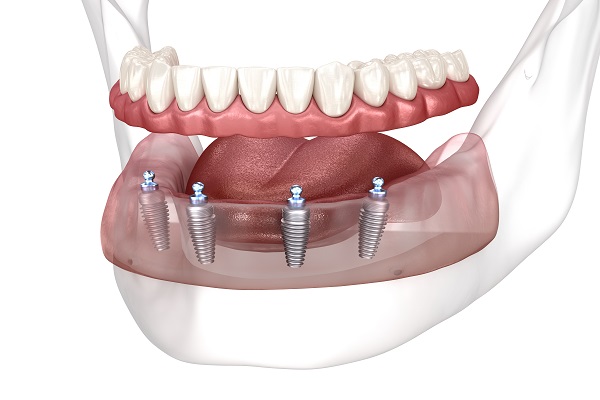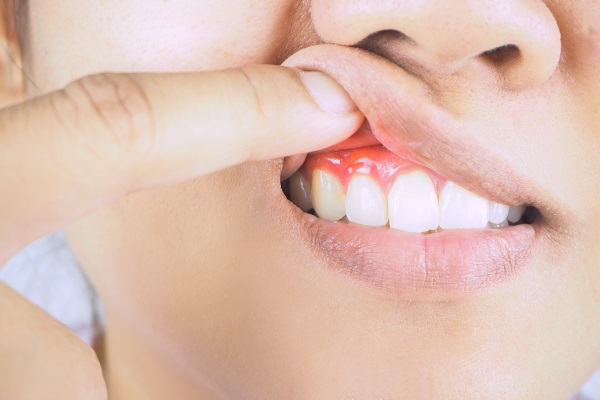 When it comes to oral health, the condition of the gums can be key. Proper brushing, flossing and the prevention of gingivitis can support good gum health; however, when individuals suffer from crooked teeth, an underbite or an overbite and choose to get braces, this may cause problems with the gingiva. Dental patients who want to repair uneven smiles should be aware of these issues, especially receding gums, which can cause pain and eventually tooth loss.
When it comes to oral health, the condition of the gums can be key. Proper brushing, flossing and the prevention of gingivitis can support good gum health; however, when individuals suffer from crooked teeth, an underbite or an overbite and choose to get braces, this may cause problems with the gingiva. Dental patients who want to repair uneven smiles should be aware of these issues, especially receding gums, which can cause pain and eventually tooth loss.
Why braces may cause gum recession
While braces can be beneficial for repairing uneven smiles by shifting teeth into new positions, they can also have a negative impact on the mouth’s gum tissue. As the braces push and pull on the teeth to move them into the desired position, they may also affect the jawbone that surrounds the teeth. This can cause a variety of problems:
- Loss of bone near or around the teeth
- Periodontal pockets between the teeth
- Gum sensitivity
Over time, as bone loss occurs, loss of the gum tissue may happen as well, which can result in receding gums. Individuals who are considering braces may want to understand what kind of risk factors may be involved and whether this problem can be avoided during and after the straightening process.
Risk factors for gum recession
Some people may already have underlying risks for receding gums, so it is important to understand them before choosing to wear braces. Those with underlying medical conditions, such as diabetes or autoimmune diseases, may be more prone to this problem. A complete oral exam and a discussion of a patient’s medical history, including gum problems that run in the family, can allow dentists to help these individuals make the best possible choice when it comes to straightening teeth.
Avoiding gum damage
If dental patients with crooked teeth experience interference with chewing or speaking or significant pain, then braces could repair these issues. If there is no evidence of gum disease or a history of periodontal problems, people fitted with braces may be able to avoid gum recession by following a few simple dental habits. Once the braces are fitted, wearers should brush more gently with a soft-bristled brush to avoid wearing away the gingiva. Consistent dental checkups to adjust the braces and inspect ongoing gum health can also help prevent gum damage.
Nontraditional braces such as clear aligners may lower the risk of gum recession because the devices are switched out as the teeth are shifted into place. Those considering braces can ask a dentist if these aligners may be a better choice when it comes to preventing periodontal pockets and other gum issues that lead to gingivitis.
Check out what others are saying about our dental services on Yelp: dental services in Austin, TX.
Conclusion
While braces can help straighten teeth and give users the confidence to smile more often, these dental implements can also cause receding gums that can lead to oral health issues. When those who choose to wear braces understand the risks and how to protect their gingiva, the outcome is more likely to be a positive one.
Request an appointment or call MM Family Dentistry at 512-477-9775 for an appointment in our Austin office.
Recent Posts
Considering All-on-4®? Also known as implant-supported dentures, this tooth replacement option is one that combines the use of dental implants with dentures. Most are familiar with dentures and how bulky they can be within the mouth. It is easy to shy away from dentures due to the awkwardness of a sliding oral appliance. On the…
Gum disease is often hard to avoid; however, once it is detected, patients can immediately visit their general dentist for a diagnosis and treatment plan. In order for it to be detected, the dentist will have to rely on any symptoms or signs that indicate a problem. Ready to learn more about the signs?Sometimes when…
Invisalign® is one of the most common treatments used to address teeth straightening problems. General dentists recommend Invisalign® quite frequently due to the many associated benefits and ease of the treatment process. One thing to know about Invisalign® is that it cannot address all orthodontic issues. However, it is a great option for misalignments and crowding, both of…


